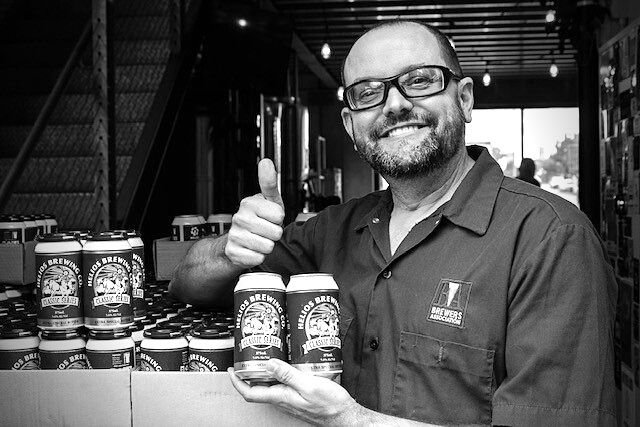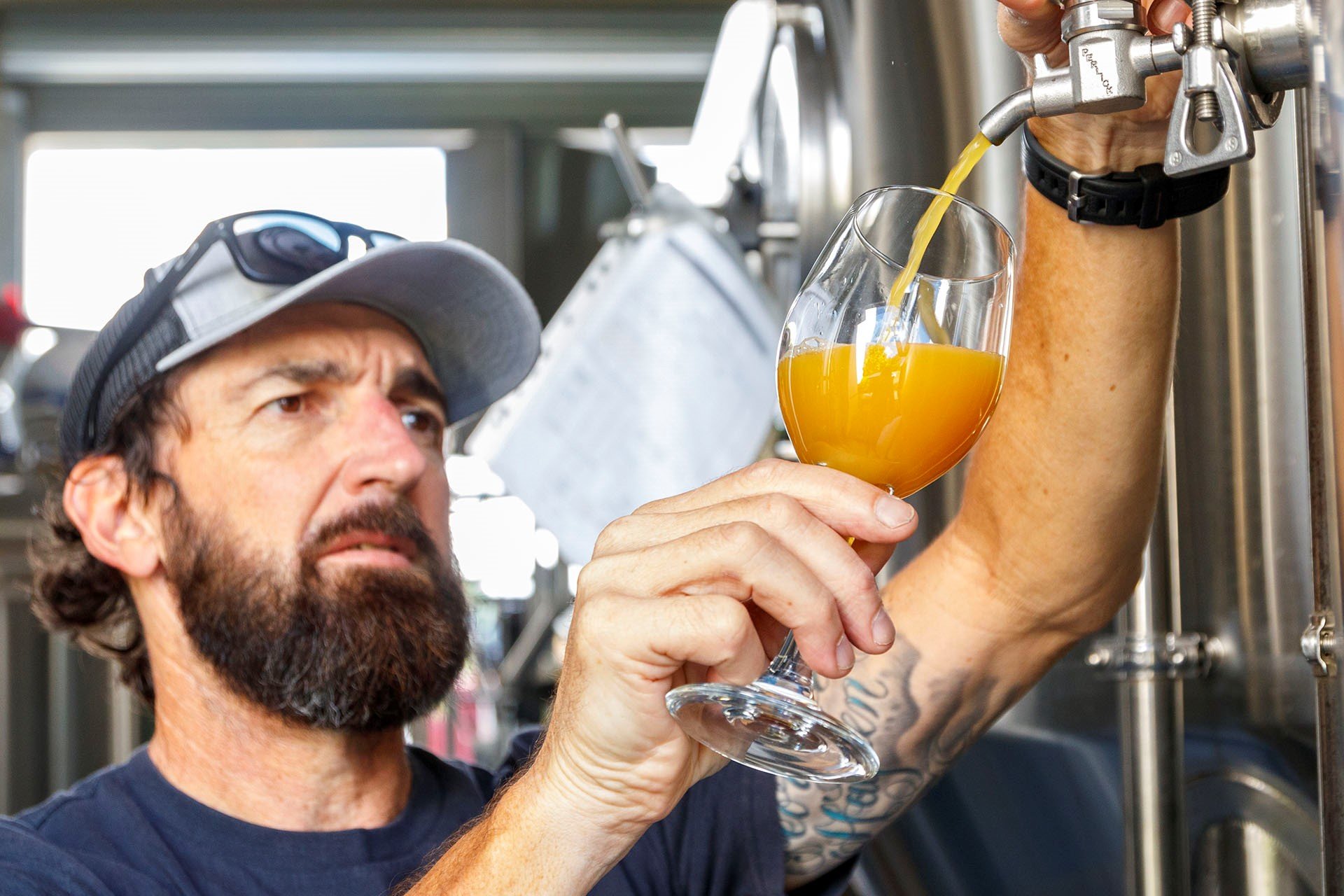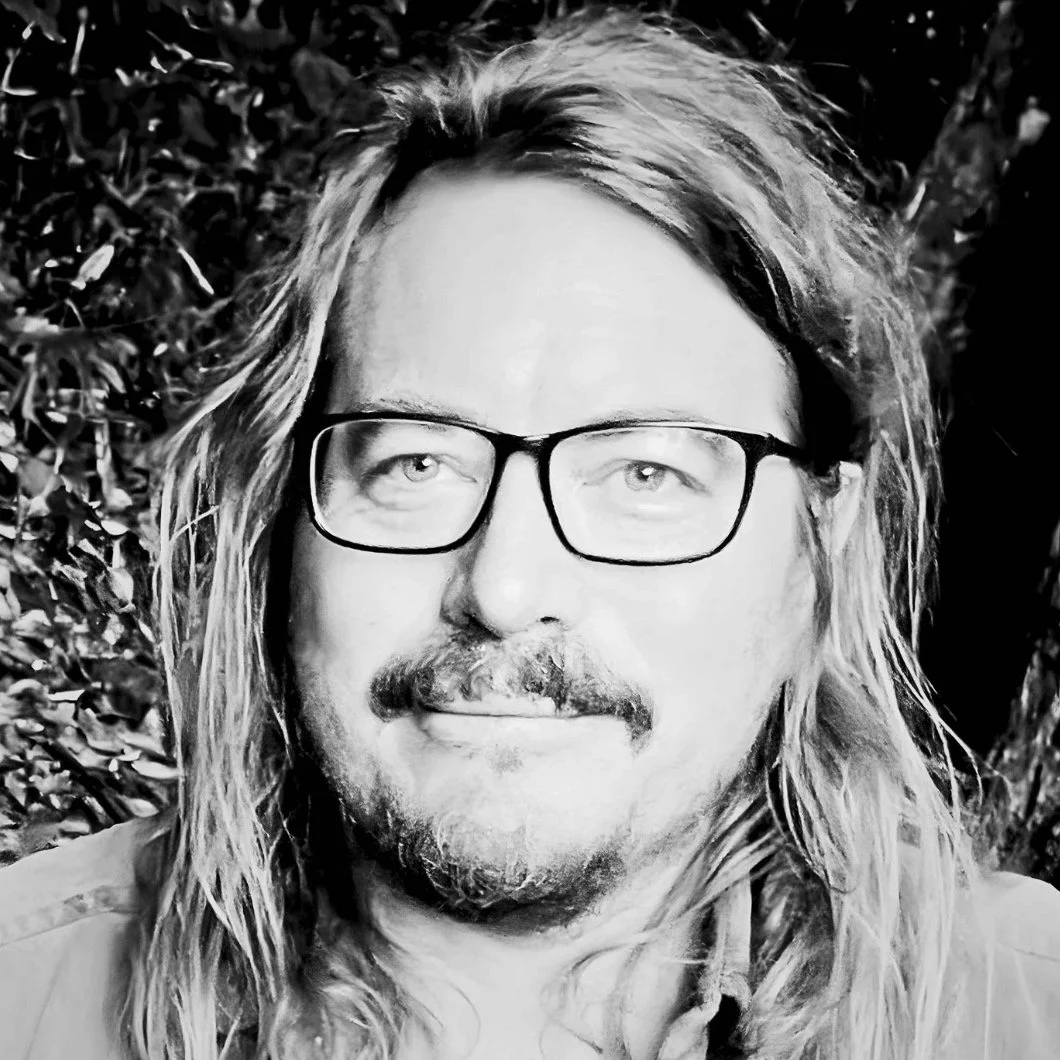Scott Shomer On Assessing Your Business For Environmental Impact Opportunities
Scott Shomer has been an avid home brewer for over 25 years and has created many award winning beers including his Belgian Strong, Dubbel, and Scottish Wee Heavy, winning the silver and bronze medals respectively at the U.S. National competition.
He has also been a certified beer judge (BJCP) since 1997, and a climate change, sustainability advocate trained by Al Gore in 2007.
Scott worked for 3 decades as an environmental engineer before founding Helios. Helios Brewing were built from the ground up to be the most sustainable as possible beer company. In 2021 Scott and Helios Brewing took home a Lord Mayor’s Business Award in Sustainability in Business.
Scott discusses his recommendations for entrepreneurs to audit their business, identify ways to reduce costs, and preserve the environment through sustainable business practices.
Highlights from the interview (listen to the podcast for full details)
[Tom Allen] - To start off, could you please share a bit about your background and what led to your interest and passion in sustainability and applying this to a beer company?
[Scott Shomer] - I grew up in the desert of the U.S. where I was always hyper aware of water shortages. Eventually, I went to university in California where you tend to be pretty socially aware anyway, and I entered into a career protecting the environment. I worked as a hydrogeologist, which is a fancy term saying that I basically found clean groundwater or cleaned up contaminated groundwater. I did that across several continents, and so I was literally trying to clean up the planet. I did that for about three decades, and I saw lots of places where people had negatively impacted the world, and I tried to put it back together again as best as possible. I've basically spent my career trying to help the environment, so it went hand in hand with my life. Then, I did a master's degree that involved glaciers in the nineties. Back in the nineties, it's hard to even think of it, but we weren't even really talking about climate change. There was this hint of something called global warming, and again I was reading lots and lots of documents about what’s happening in glaciers now, and we couldn't make our models fit. Basically, we came at it from an academic and reality standpoint, where I was out and about in the world trying to fix things by finding groundwater when it's depleting and when we're going into droughts. But I always liked making beer, and so finally I decided that I had had enough of cleaning up oil spills and decided to follow something else I'm passionate about, and that was beer. But I had to do it sustainably.
What are some of the key lessons you've learned on your journey since founding Helios Brewing Company?
That’s the million-dollar question really. What I have learned is that being green doesn't actually cost you money, you can actually save a huge amount of money.
It makes us far more commercially viable by being green, and so I think the biggest thing I have found and the thing that I am now trying to advocate for other businesses to do is to be early adopters.
Our power and gas bills (which are normally pretty expensive in the brewing business) are about a 10th of what a similar size system would have. I did this as an experiment to see how green I could be. Since power and gas is a huge expenditure and we're paying a 10th of what my competitors are, that means two things. One, it means we are more resilient. Two, it means we can afford a really top-notch brewer as well as better ingredients, and so we try and make our products stand out in the market. There are commercial advantages to being green.
What are specific steps you think other businesses could take to minimise their impact? What do you think is really holding a lot of other businesses back from doing this?
Let me start from the last question and go backwards. What's holding businesses back is that people don't necessarily know what is available to do. I've never seen businesses that don't want to be more sustainable, by and large they want to be green, they want to reduce their footprint, they want to reduce costs and expenditures. I think the only thing that's holding them back is the know-how and having commercial equipment and techniques that are readily available. I could tell you in engineering speak about gaining efficiencies and all kinds of crazy jargon how to do this. But what I try and encourage people to do is look at their business and figure out where they can cheat. That's what I break it down to; cheat. Here in Queensland, and I just had this discussion with the Treasurer, they were asking, "what advantages does Queensland have over other states?" I said, "you can't go past the sun." Everybody starts immediately thinking of solar power.
We are named after the Greek Sun god because I cheat and capture as much energy from the sun as possible. I'm not just talking about photovoltaic energy; I actually capture four tons of hot water that is brought almost to a boil using the sun.
We store that essentially as a solar battery, so whenever we need part of the system to heat up, we have captured that and it's free. We do the exact opposite when we're producing more power than we need. We chill down three and a half tons of water to three degrees and store excess solar energy in the form of cool water.
Everything in our business requires heating up and cooling down, so I'm taking the power of the sun and cheating. I'm making it work for me. As such, our solar photovoltaic energy paid for itself in under a year, and our solar hot water system paid for itself in under six months.
What advice would you give to early-stage impact led entrepreneurs who are working really hard to develop their business?
I would say do an audit, and it doesn't have to be an official or fancy audit. Go around your business and think about what your impacts are. What is your lighting? What do your waste streams look like? How much are you spending on power and energy? Just look at your business critically. The moment you start capturing these things on paper and start tracking them, they become very real to you. If you realise you're paying a thousand dollars a month for water, then you think, "if we do something to reduce our water consumption by 20%, it will have this impact on us."
The first step for any business and household is get out there, measure, and start thinking about where your money is going. What are your impacts and what are your waste streams? Once you start documenting it, you can start a plan of attack on what to do.
I do want to give a second thought that is absolutely critical. I encourage anybody to dispel the myth that being green is going to require a lot of kit, a lot of engineering, or you're going to have to rebuild your systems or business. Throw that idea in the garbage! There are lots of things you can do sometimes through managerial changes alone. We found a big consumer of electricity was a compressor that was running 24/7 to chill down the tanks. By using a $30 timer from Bunnings, we're able to shut that compressor down from midnight until 6:00 AM when the sun comes up again. This change doesn't affect how we do business. It wasn't until we captured how much electricity we were using and asking at what time of the day are we using it where is it coming from (until we realised this). The solution wasn't anything fancy, we didn't have to go and install something on the building, it was a $30 timer. There are opportunities like this with every business and household to make small, engineered changes, managerial changes or process changes. Sometimes, you can even change the order that you do things and be more efficient. I would start looking in those areas.
What inspiring projects or initiatives have you been coming across recently that you believe are creating some really positive social change?
It seems to me that we are on the cusp of a whole new industrial revolution, and it is super exciting. There is a tiny little commercial electric vehicle in Australia, and it was one of the first in the country, but now all of a sudden, I'm starting to see them more and more. There's another brewery using algae, and they are bubbling the CO2 through the algae in order to make biodiesel so they're not emitting CO2 into the atmosphere.
Because I work with a wide variety of businesses, it’s really humbling that I'm seeing so many do something in their business to become more sustainable and how creative people and businesses are these days.
What books or resources would you recommend to our listeners, and for any of the beer nerds out there, what is your favourite hop?
As a West Coast American, I can't go past cascade hops! If you have ever had Sierra Nevada or certainly any number of Helios brews, it just has this citrus aroma and pine spice in it, and it's just really clean. That's probably my favourite classic hop, but there are some real cool ones that are coming on the market.
As for books, it's not a new book, but one of my favourite books that I go back every few years and reread is called The World Without Us by Allan Weisman. Much like Chernobyl, it explores what happens if for some reason all the people on the planet disappeared one day? What would happen to all of the infrastructure; the roads, the bridges, the dams and everything that we have inserted into this planet, what would happen to it? It starts by the hour, and then days, weeks, and then years. To me it's interesting because it looks at reverse engineering, because we've had a great impact on the planet, so how long would it take the planet to shake off our impact and how long would it take for the trees to come back, the dams to burst and the rivers to start running their course? It's a great read.
Initiatives, resources and people mentioned on the podcast
Recommended books
The World Without Us by Alan Weisman









